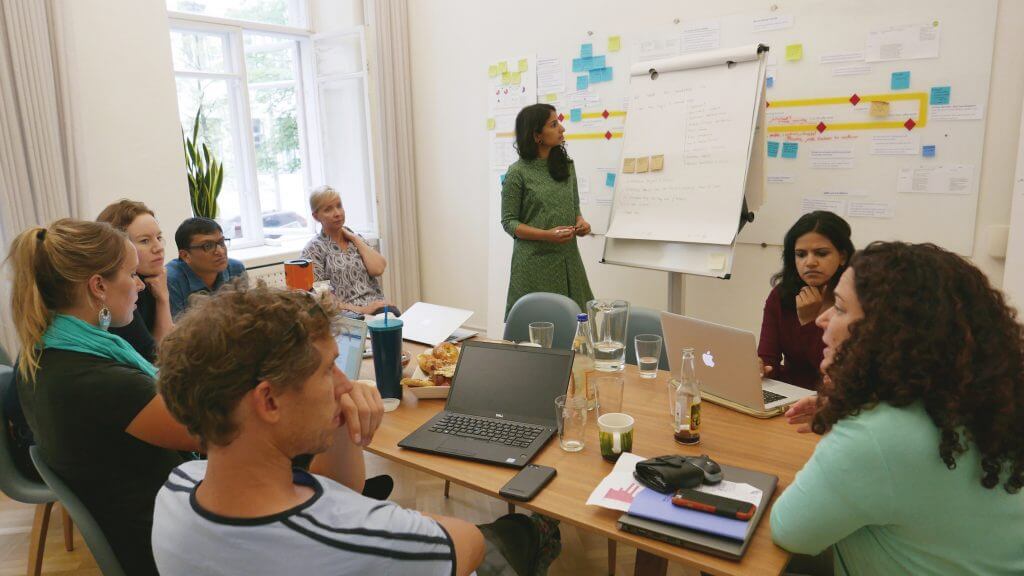Next steps set for health project in India
Even the weather was on our side as the University of Texas Austin research team, comprising of the Principal Investigator Dr. Cristine Legare, Project Manager Dr. Emily Little and anthropologist Oscar Burger, landed in exceptionally warm and sunny Helsinki.
Together, we spent two-and-a-half days focusing our efforts on mutually sharing the initial desk research findings, narrowing down the research focus and discussing the next steps of the project.
Based on reading of secondary materials shared by organisations and academics working in adjacent spaces, both teams shared valuable insights about the rituals and behaviours along the journey of pregnancy, and of front line workers, in rural Bihar. The teams were also able to identify gaps in their current understandings, leading to a better overall comprehension of information areas the project could focus on. A lot of this thinking will culminate in a formative field visit to rural Bihar in the end of July, where the teams look to not only conduct some exploratory design research, but also do small-scale pilots of quantitative measures designed by Dr. Legare and the team.
M4ID’s Design Research Lead, Priyam Sharda, sums up this intensive and efficient co-working session, stating, “We were able to make some great progress working together these last few days. Through collaborative and extended discussions, we narrowed down to specific areas what the project should focus on. As tempting as it always is to focus on everything, we feel that this will really help the project generate more impactful outcomes.”

Design research lead, Priyam Sharda
Project Rise (Ritual to Improve Service-delivery and Empower health workers):
· With the help of social science research methods and human-centered design (HCD), RISE seeks to understand and leverage rituals to improve the quality of healthcare service delivery by frontline workers in Bihar, India.
· The project is a collaboration between the University of Texas, Austin, and M4ID
· The first formative field visit will take place at the end of July 2018.
Back to news